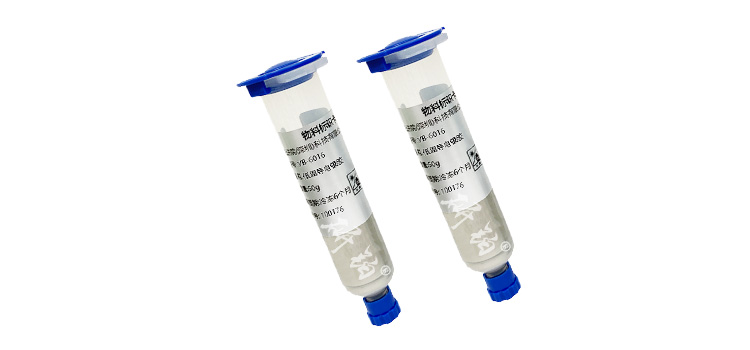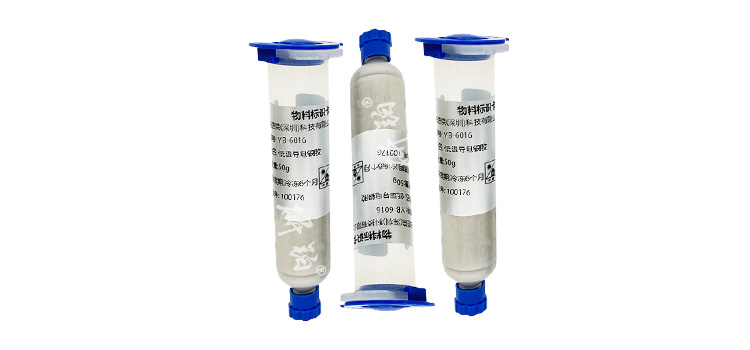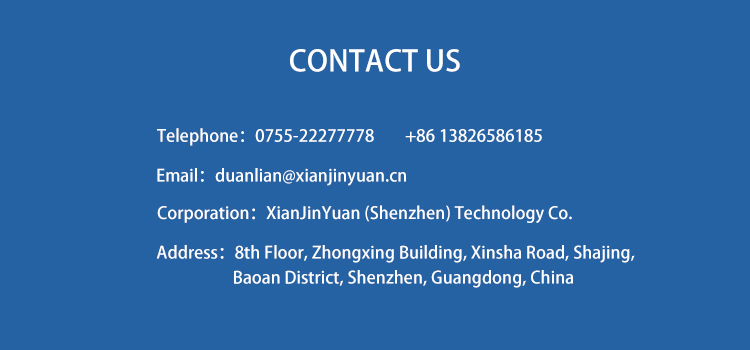

Hotline:0755-22277778
Tel:0755-22277778
Mobile:13826586185(Mr.Duan)
Fax:0755-22277776
E-mail:duanlian@xianjinyuan.cn
Conductive silver adhesive, as a type of adhesive with conductive properties after curing, is widely used in fields such as electronic packaging and chip connection. The performance of its adhesive force between different materials is directly related to its conductivity and long-term reliability. This article will explore the differences in adhesive strength of conductive silver paste between different materials through reference to experimental data and comparative analysis, with a focus on the research and development of Advanced Institute (Shenzhen) Technology Co., LtdLow temperature conductive silver adhesive - Research Platinum YB6016Compatibility performance on different substrates.
Conductive silver paste is mainly composed of matrix resin, conductive filler (such as silver powder), curing agent, and other additives. The selection and ratio of these components directly affect the performance of conductive silver paste. For example, the matrix resin serves as the molecular skeleton of the conductive adhesive and plays a bonding role after curing, closely connecting the conductive filler with the substrate. The particle size and morphology of conductive fillers, such as silver powder, have a significant impact on the conductivity, adhesion, and thermal conductivity of conductive silver paste.
In order to study the differences in adhesive strength of conductive silver paste between different materials, Advanced Institute (Shenzhen) Technology Co., LtdResearch Platinum YB6016 Low Temperature Curing Silver AdhesiveA series of compatibility tests were conducted on the system. Five commonly used substrates were selected for the experiment: ceramics, polymers, silicon wafers, metals, and glass.
Tensile strength is an important indicator for measuring the degree of bonding between silver adhesive and substrate. Experimental data shows that:
The residual deflection reflects the degree of deformation of the silver adhesive after being subjected to external forces. A smaller residual deflection indicates better compatibility between the silver adhesive and the substrate.
A close coefficient of thermal expansion is beneficial for maintaining good compatibility during temperature changes.

The experimental data shows that,Research Platinum YB6016 Low Temperature Curing Silver AdhesiveIn addition to polymers, it exhibits good compatibility and stability with other types of substrates. Especially on ceramic and metal substrates, the tensile strength shows excellent performance, highlighting its advantages in high-strength conductive adhesive applications. This may be closely related to the characteristics of YB6016, such as low curing temperature, good bonding effect, and smooth dispensing.
In contrast, YB6016 has poor compatibility with polymers, which may be related to the physical and chemical properties of the polymer. The molecular chain structure of polymer substrates is complex and prone to react with certain components in conductive silver adhesives, resulting in a decrease in adhesive strength.
Based on the above experimental results, for engineers who need to apply low-temperature cured silver paste on different substrates, it is recommended to prioritize ceramic and metal substrates when choosing YB6016, in order to ensure the best conductivity and long-term reliability. For polymer substrates, it may be necessary to seek other types of conductive adhesives or use special surface treatment techniques to improve adhesion.
In summary, there is a significant difference in the adhesive strength of conductive silver paste between different materials. Choosing the appropriate combination of conductive silver paste and substrate is crucial for ensuring the quality and reliability of electronic products.
The above data is for reference only, and specific performance may vary due to production processes and product specifications.

Advanced Institute (Shenzhen) Technology Co., Ltd, © two thousand and twenty-onewww.avanzado.cn. All rights reservedGuangdong ICP No. 2021051947-1 © two thousand and twenty-onewww.xianjinyuan.cn. All rights reservedGuangdong ICP No. 2021051947-2